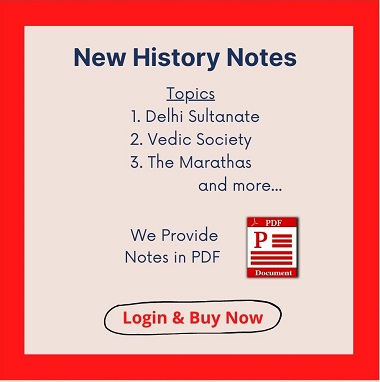National Lists of Essential Medicines (NLEM) 2022: Union Minister for Health and Family Welfare, Dr Mansukh Mandaviya, launched National Lists of Essential Medicines (NLEM) 2022.
Key Points:
- 34 new medicines have been added and 26 old ones from the previous list have been dropped.
- A total of 384 medicines feature on NLEM 2022 under 27 therapeutic categories.
- This revised list has come out after a gap of seven years.
- Revision of NLEM 2022 has been done after constant consultation with stakeholders spanning from academia, industrialists and public policy experts etc., and crucial documents like WHO EML 2021.
- Its drafting required extensive participation from more than 350 specialists from all over the nation and more than 140 consultation meetings.
- The list includes anti-infectives medicines to treat diabetes such as insulin, HIV, tuberculosis, cancer, contraceptives, hormonal medicines and anesthetics.
- Its primary aim is to promote rational use of medicines considering three important aspects — cost, safety and efficacy.
What is NLEM?
- National List of Essential Medicines (NLEM) are those that satisfy the priority healthcare needs, based on:
- Efficacy,
- Safety,
- Quality and
- The total cost of treatment.
- In NLEM, the medicines are categorized based on level of healthcare system as-
- P- Primary.
- S- Secondary.
- T- Tertiary.
- In India, NELM is framed on the lines of the Essential Medicines List (EML) released by the WHO (World Health Organzation).
- The NLEM is released by the Ministry of Health and Family Welfare.
- The first NELM of India was prepared and released the first National List of Essential Medicines of India in 1996 consisting of 279 medicines.
- This list was subsequently revised in 2003, 2011, 2015 and 2022.
- Drugs listed under NLEM is also known as scheduled drugs.
- Drugs listed under NLEM will be cheaper because the National Pharmaceutical Pricing Authority (NPPA) caps medicine prices and changes only based on wholesale price index-based inflation.
- The department of pharmaceuticals under the ministry of chemicals and fertilizers typically adds newly issued NLEM to the Drug Price Control Order after which the NPPA regulates the price.
Criteria for a Medicine to be Included in NLEM:
- A significant criterion for inclusion in NLEM is based on the following:
- The medicine shall be useful in diseases that is a public health problem in India.
- The medicine shall be licensed/ approved by the Drugs Controller General India (DCGI).
- It shall have proven efficacy and safety profile based on scientific evidence.
- It should be comparatively cost effective and aligned with the current treatment guidelines.
- The medicine shall be recommended under National Health Programs of India.
- When more than one medicine are available from the same therapeutic class, one prototype/ medically best suited medicine of that class to be included.
- The price of total treatment shall be considered while including the drug in NLEM and not the unit price of a medicine.
- The single-dose medicines are considered for inclusion in NLEM. The Fixed Dose Combinations (FDCs) are usually not included. The FDCs are only included if they have a proven advantage concerning the therapeutic effect.
- In case of vaccines, it is as and when it is included in Universal Immunization Programme.
The criteria for deletion from NLEM are based on:
- The medicine has been banned in India.
- If there are reports of concerns on the safety profile
- If medicine with better efficacy or favourable safety profile and better cost-effectiveness is now available
- The disease burden for which medicine is indicated is no longer a national health concern
- In case of antimicrobials, if the resistance pattern has rendered an antimicrobial ineffective
What is an Essential Medicine List (EML)?
- According to the WHO, Essential Medicine List (EML) is a list of those medicines that satisfy the priority health care needs of the population.
- Disease prevalence, medication effectiveness, safety, and comparative cost-effectiveness are considered when compiling the list.
- Such medications should be accessible in a way that a person or a group of people can afford them.
- The WHO EML is updated every two years by the Expert Committee on Selection and Use of Essential Medicines.
History:
- Tanzania, in 1970, was the world’s first country to compose its EML.
- The World Health Assembly (WHA) then in 1975, requested WHO to assist member states in selecting and procuring essential medicines, assuring good quality at a reasonable cost.
- Eventually, the first WHO model list of essential medicines was published in the year 1977 which contained 186 medicines.
- It stated that essential medicines were “of utmost importance, basic, indispensable and necessary for the health and needs of the population” and the criteria for selection were based on efficacy, safety, quality and total cost.
About National Pharmaceutical Pricing Authority (NPPA):
- The National Pharmaceutical Pricing Authority (NPPA) is a government regulatory agency that controls the prices of pharmaceutical drugs in India.
- NPPA was constituted vide Government of India (GoI) Resolution dated 29th August 1997 as an attached office of the Department of Pharmaceuticals (DoP), Ministry of Chemicals and Fertilizers as an independent Regulator for pricing of drugs and to ensure availability and accessibility of medicines at affordable prices under the Drugs (Prices Control) Order, 1995-2013.
Its mandate is:
- To implement and enforce the provisions of the DPCO in accordance with the powers delegated to it.
- To deal with all legal matters arising out of the decisions of the NPPA.
- To monitor the availability of drugs, identify shortages and to take remedial step to collect and maintain data on production, exports and imports, market share of individual companies, profitability of companies etc., for bulk drugs and formulations and undertake and/ or sponsor relevant studies in respect of pricing of drugs/ pharmaceuticals.
A)
B)
C)
D)

